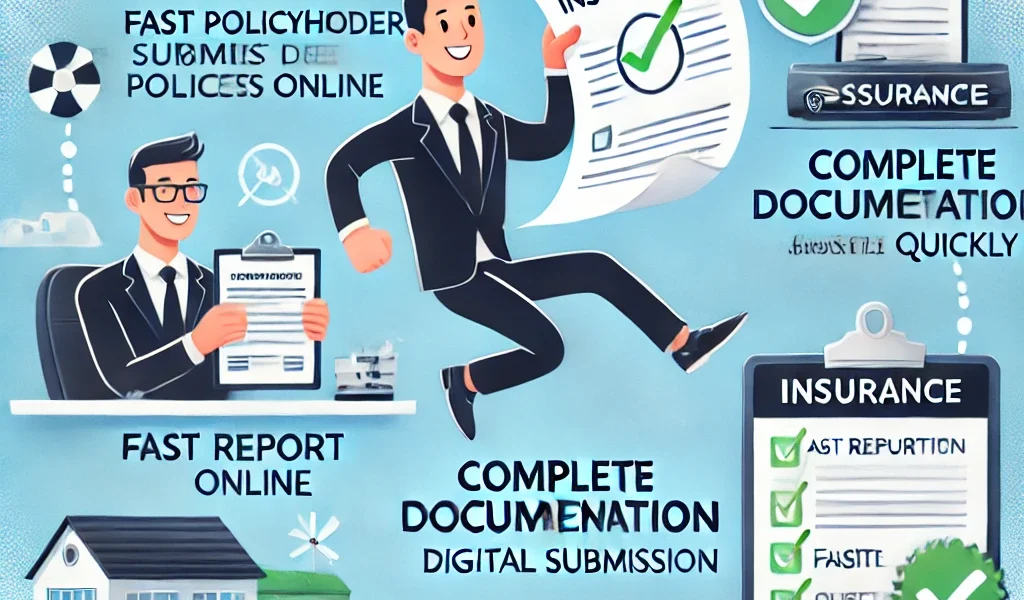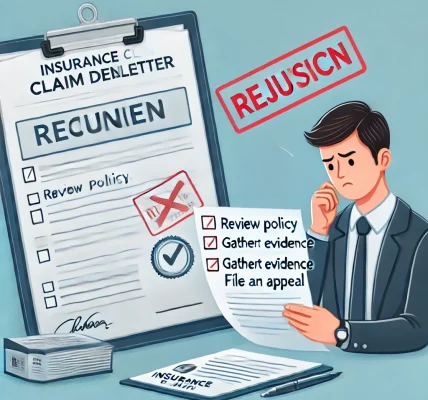Filing an insurance claim can be a time-consuming process, and delays can cause unnecessary stress and financial burdens. Whether it’s for health, auto, home, or business insurance, knowing how to expedite your claim approval can make a significant difference. This step-by-step DIY guide will help you streamline the claims process, avoid common delays, and receive your payout faster while staying compliant with all legal requirements.
1. Understand Your Policy Before Filing a Claim
Why It’s Important:
Many delays occur because policyholders file claims for items or situations not covered by their policy.
How to Avoid Delays:
- Read your policy thoroughly to understand coverage, exclusions, and claim limits.
- Familiarize yourself with the deductible amount and how it affects your payout.
- If unsure, contact your insurance provider to clarify coverage details before filing a claim.
2. Report the Claim Immediately
Why It’s Important:
Insurance companies often have strict deadlines for claim submission. Delaying the claim can lead to rejections or prolonged processing times.
How to Avoid Delays:
- File your claim as soon as possible after the incident.
- Contact your insurance company via phone, email, or their online portal to initiate the process.
- Ask about the specific documents required to process the claim efficiently.
3. Provide Accurate and Complete Information
Why It’s Important:
Incomplete or incorrect details can lead to back-and-forth communication, extending the claim approval timeline.
How to Avoid Delays:
- Double-check all forms and documents for accuracy before submitting them.
- Provide detailed descriptions of the incident, including dates, locations, and causes.
- Ensure that all names, addresses, and policy numbers are correctly entered.
4. Gather and Submit Essential Documentation Promptly
Why It’s Important:
Missing documents are one of the most common reasons for delayed claims.
How to Avoid Delays:
- Take clear photographs and videos of damages, injuries, or losses.
- Keep receipts, invoices, and financial records to substantiate claims.
- Obtain a police report if applicable (e.g., auto accidents, theft, or vandalism).
- Collect medical reports and doctor’s notes for health-related claims.
5. Follow the Insurance Provider’s Claim Process Correctly
Why It’s Important:
Every insurance company has specific claim filing procedures that must be followed to avoid unnecessary hold-ups.
How to Avoid Delays:
- Follow the correct claim submission method (online, email, or in person).
- Ensure all required fields on claim forms are completed.
- Use the insurance provider’s preferred format for document submission (PDF, scanned copies, etc.).
6. Cooperate Fully with the Insurance Adjuster
Why It’s Important:
Insurance adjusters are responsible for evaluating your claim. Delays in responding to their inquiries or failing to provide additional information can prolong approval times.
How to Avoid Delays:
- Be available for inspections and respond to queries promptly.
- Provide additional documents or evidence if requested.
- Maintain a professional and cooperative attitude during the assessment process.
7. Keep a Record of All Communications
Why It’s Important:
Tracking conversations with your insurer ensures accountability and prevents miscommunication.
How to Avoid Delays:
- Save emails and letters related to your claim.
- Take notes during phone conversations, including the date, time, and name of the representative.
- Keep copies of all documents submitted.
8. Avoid Common Mistakes That Cause Delays
Why It’s Important:
Certain mistakes can slow down the claim process or even result in claim denial.
How to Avoid Delays:
- Do not exaggerate or misrepresent information—this can be flagged as fraud.
- Ensure you provide all requested documents the first time to avoid multiple follow-ups.
- Do not ignore policy exclusions—filing claims for uncovered incidents wastes time.
9. Consider Hiring a Public Adjuster for Complex Claims
Why It’s Important:
For high-value or disputed claims, a public adjuster can negotiate on your behalf to speed up the process and ensure fair compensation.
How to Avoid Delays:
- Hire a licensed and reputable public adjuster if your claim is complex.
- Public adjusters handle documentation, negotiations, and appeals, reducing your workload.
- Ensure their fees are reasonable and agreed upon in writing.
10. Follow Up Regularly Without Being Overbearing
Why It’s Important:
Insurance companies handle numerous claims daily, and follow-ups ensure yours remains a priority.
How to Avoid Delays:
- Contact your insurer periodically for updates on your claim status.
- Be polite but persistent in requesting progress reports.
- If delays persist, escalate the matter to a supervisor or customer service manager.
11. Know When to Escalate Your Claim
Why It’s Important:
If your claim is taking too long, you may need to take further action.
How to Avoid Delays:
- If your insurer is unresponsive, file a formal complaint with their grievance department.
- Check if you can escalate your case to a regulatory body (such as a state insurance commissioner).
- If necessary, seek legal advice for unresolved or disputed claims.
12. Utilize Digital Tools for Faster Processing
Why It’s Important:
Many insurance providers offer digital claim submission, which speeds up processing compared to traditional paperwork.
How to Avoid Delays:
- Use your insurer’s mobile app or online portal for faster document uploads.
- Opt for electronic fund transfers (EFTs) for quicker payouts.
- Track your claim status online instead of waiting for phone updates.
Conclusion
Speeding up your insurance claim approval is possible with proper preparation, prompt action, and clear communication. By understanding your policy, submitting complete documentation, cooperating with adjusters, and following up strategically, you can significantly reduce delays and receive your settlement faster. Stay organized, proactive, and informed throughout the process to ensure a smooth and hassle-free claim experience.
By following this step-by-step DIY guide, you can take control of your insurance claim process and get the financial support you need without unnecessary waiting. Always be honest, diligent, and thorough to maximize your chances of quick approval and fair compensation.




